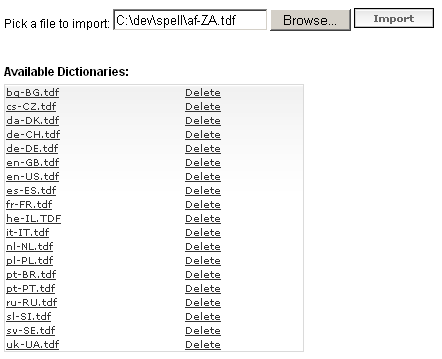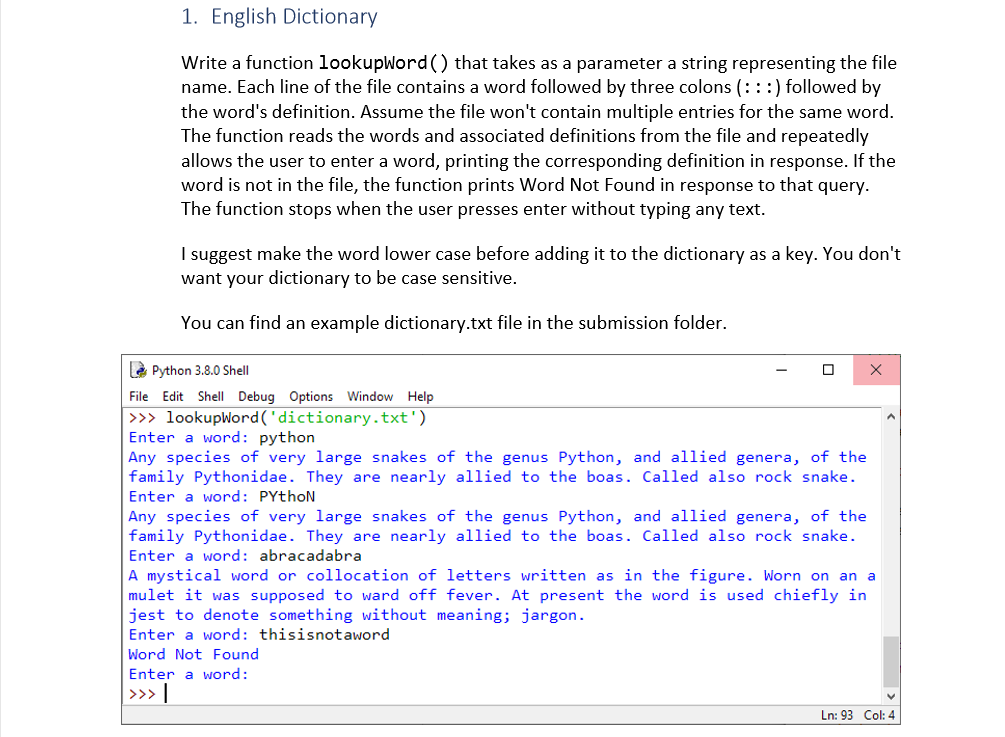
‘For storage, we already have a standard database - data should be stored in individual posts on the filesystem, in plain text files.’.‘Each volume has a brief introduction, plain text on the page, and sketchy notes and glosses at the end.’.‘The first thing it does is to make sure the file has an extension indicating it contains HTML-formatted text or plain text.’.‘Messages are not encrypted there's a chance sensitive information will be transmitted in plain text over the public Internet.’.COPYRIGHT AND LICENSE Copyright (C) 2004-2013 Barbie for Miss Barbell Productions. AUTHOR Barbie, įor Miss Barbell Productions. In the second instance, the function will not load a dictionary, but can be used to interrogate the contents of a known dictionary. Note that $path can either be the directory path, where $dict must be the specific file name of the dictionary, or the full path of the dictionary file. Having instantiated the Data::Phrasebook object class, using the file and dict attributes as required, the object can return a list of the current keywords available as: my $pb = Data::Phrasebook->new( Having instantiated the Data::Phrasebook object class, and using the file attribute as a directory path, the object can return a list of the current dictionaries available as: my $pb = Data::Phrasebook->new( Returns the phrase stored in the phrasebook, for a given keyword. To utilise the dictionary framework for a Plain Text phrasebook, the idea is to use a directory of files, where the directory is passed via the file argument and the dictionary, the specific name of the file, is passed via the dictionary argument. This method is used internally by Data::Phrasebook::Generic's data method, to initialise the data store. See that module for other available methods and documentation. INHERITANCEĭata::Phrasebook::Loader::Text inherits from the base class Data::Phrasebook::Loader::Base. The default style of placeholders can be altered using the delimiters() method. Within the phrase text placeholders can be used, which are then replaced with the appropriate values once the get() method is called.

In this implementation a single file is one complete dictionary.Īn example plain text file: foo=Welcome to :my world.

Groups of phrases are kept in a dictionary.

Phrases may contain placeholders, please see Data::Phrasebook for an explanation of how to use these. Phrases can be contained within one or more dictionaries, with each phrase accessible via a unique key. This loader plugin implements phrasebook patterns using plain text files. My $phrase = $q->fetch($keyword,) DESCRIPTION Data::Phrasebook::Loader::Text - Absract your phrases with plain text files.


 0 kommentar(er)
0 kommentar(er)
